3 Ways to Achieve Your Supplier Sustainability Goals with Crown Battery (and what to look for when you compare manufacturers)
Some batteries are built with electricity from fossil fuels, virgin-mined raw materials, and inefficient conventional manufacturing.
That’s bad for the environment, your sustainability goals, and your ROI.
Here are three ways Crown helps you hit your sustainability targets and reduces waste:
1) First-ever battery manufacturer to become an EPA Green Power Partner
Sourcing renewable energy for manufacturing didn’t just slash upstream pollution. It also helped us earn a spot as an EPA Green Power Partner — a landmark for the battery industry.
2) Companywide energy efficiency programs reduce waste, emissions, and costs
Altogether, we’ve saved enough electricity to power 13,000 American homes.
It started with energy efficiency enhancements like on-site solar panels, ultra-efficient lighting, and geothermal cooling.
And our latest addition, an ultra-efficient charging system, drastically reduces energy consumption. (Charging accounts for 70% of Crown's electrical usage.) The new charging equipment will also enhance battery performance and lifespan.
These efforts earned us AEP Ohio's Sustained Excellence Award (2020, 2015, and 2014); Continuous Energy Improvement Award (2016); and Energy Efficiency Champion Award (2013).
And we continue reinvesting our energy savings into projects that improve manufacturing quality and lower energy usage.
3) Robotic assembly slashes manufacturing scrap
Lead-acid batteries have been in field use for more than 100 years – and we’re continuously improving them with technologies, tools, and materials that didn’t even exist years ago.
Today, we use 3D printing and computer-assisted modeling to create more efficient, lower-waste battery models that last longer before recycling.
And robotic assembly reduces scrap (wasted materials during production).
For instance, our cast-on-strap (COS) welding allows for 3,960 more adjustments than manual welding. COS improves weld consistency and the electrical connection between battery cells, nearly eliminating a common failure point. Cutting out welding mistakes early in production means we don't have to scrap and redo batteries where traditional manufacturers would.
Less waste and improved longevity are better for us and for you.
BONUS: Made using 99% recyclable materials
Batteries like Crown’s flooded lead-acid (FLA) and absorbent gel mat (AGM) models are 99% recyclable – and there more recycled than an aluminum can, according to the US EPA.
Because our batteries are easily recycled into new batteries, they have a much smaller environmental footprint – and there’s less expensive, new mining.
BONUS – To learn how reducing battery waste helps you and our planet - whether you choose Crown or another manufacturer – download our the Zero Battery Waste Guide now.




